Share
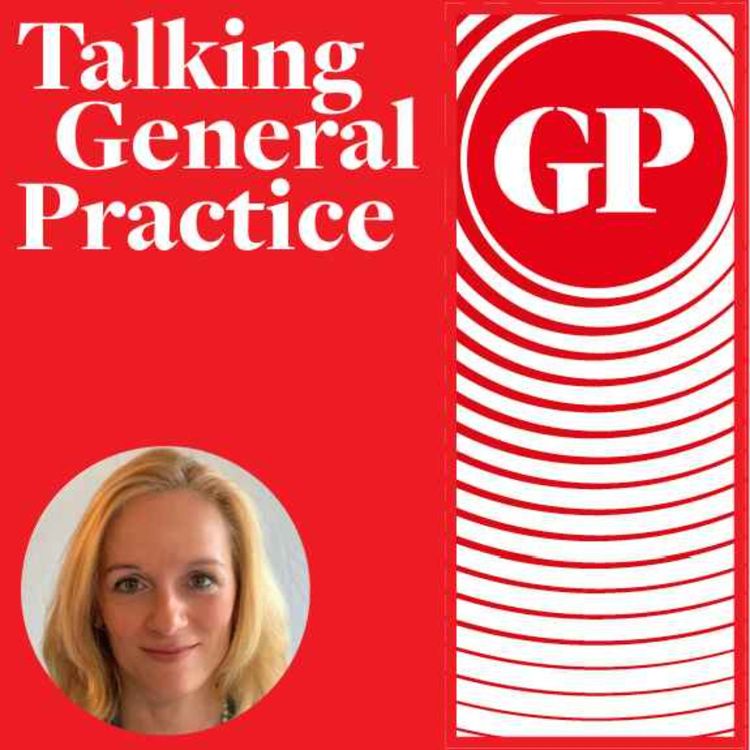
Talking General Practice
How general practice can achieve 'parity of esteem' in the NHS
Earlier this year the Royal College of GPs published a statement setting out a number of steps it said needed to be taken to ensure general practice was treated on a par with other branches of medicine. The college argued that a failure to recognise general practice’s role as the cornerstone of the NHS was driving underfunding and perpetuating the GP crisis.
This week Emma talks to the college’s vice chair for external affairs Dr Victoria Tzortziou Brown about how we can achieve parity of esteem for general practice and why it is so important that we do.
Victoria talks through some of the recommendations the college has made around tackling inequalities in training, education and research; why we need steps to limit workload in general practice; and the importance of greater representation of general practice in leadership roles both locally and nationally.
She also explains why the GMC’s specialist and GP register should be merged and discusses how the college hopes its strategy on achieving parity will develop in the coming months.
You can find the college’s statement on achieving parity for general practice here https://www.rcgp.org.uk/representing-you/policy-areas/parity-esteem
The article on GPonline about how the RCGP was founded is here https://www.gponline.com/nhs-70-founding-rcgp/article/1485054
This episode was presented by GPonline editor Emma Bower and produced by Czarina Deen.
Get in touch
If there is an issue or topic you would like us to cover on future episodes of Talking General Practice, please email us at gppodcast@haymarket.com
More episodes
View all episodes
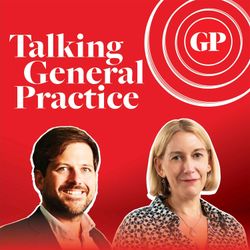
21. Adopting new tech and AI in general practice
37:04||Season 6, Ep. 21Emma speaks to Patrick Denston about how GP practices can make the best use of new tech and what the next five years could hold.Patrick is a PCN digital transformation and change manager and a practice business manager based in Farnborough, Hampshire, as well as an NHS England AI peer ambassador.He has a proven track record of successfully introducing new technology into general practice. In this conversation, Patrick explains how his practice has moved away from manual, paper-based processes to embrace digital and AI tools and advanced data analytics.He discusses how these tools are helping to improve access and address other challenges in the practice and also shares some very practical advice for other practices looking to embrace new tech, including how to navigate the busy market of tech suppliers.Emma and Patrick also look ahead to the future of general practice, discussing the government’s 10-year plan and how AI and data-led population health management could fundamentally change the way practices operate over the next five years.This episode was presented by GPonline editor Emma Bower. It was produced by Czarina Deen.Useful linksViewpoint: How can general practice make best use of AI?AI tools in general practice and liability - advice for GPsUsing AI transcribing software in general practice - medicolegal considerations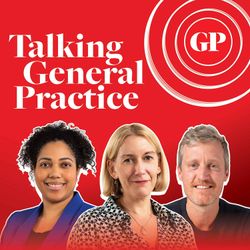
20. GP contract predictions, uncertainty over neighbourhoods, tackling the GP jobs crisis
39:10||Season 6, Ep. 20Emma and Nick talk about some key news stories from the end of December and the start of this year linked to issues where we are expecting some major developments in the early part of 2026.They talk about the 2026/27 GP contract, what the BMA and RCGP have said the contract needs to address, as well as some of their own predictions about what could happen.They look at what comes next with neighbourhoods and how general practice can ensure it is protected against big changes that could be coming down the track.And they discuss the impact the ongoing jobs crisis is having on the profession in England and what the government could do to address this in both the GP contract and the forthcoming workforce plan.This week’s good news story is about the GPs and other general practice staff awarded new year honours.This episode was presented by GPonline editor Emma Bower and deputy editor Nick Bostock. It was produced by Czarina Deen.Submit your case studies highlighting good work in your practice to GP Business here. Useful linksGPs, practice nurses and practice manager recognised in New Year HonoursBMA reveals GP contract demands for 2026/27New RCGP chair outlines college response to GP contract consultationGPs forming huge companies to bid for neighbourhood contractsRegistrars delay qualifying as GPs amid 'bleak' job market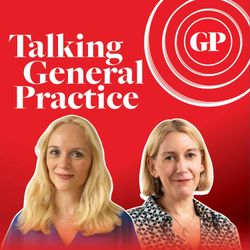
19. New RCGP chair Dr Victoria Tzortziou Brown on how to restore joy and pride in general practice
35:23||Season 6, Ep. 19Emma speaks to the new chair of the Royal College of GPs Dr Victoria Tzortziou Brown, who took on the post at the end of November.Victoria is the first international medical graduate to chair the college and has worked as a GP in East London for 20 years.In this conversation, Victoria sets out her priorities for her time as chair, including defining the role of general practice in a changing healthcare system, tackling workload pressures and ensuring new technology supports GPs in practice - and why the college is running a consultation with members on these key issues.She explains why she wants to bring hope back to the profession and help make general practice a sustainable and fulfilling career once again and highlights the importance of the college championing continuity of care as part of this.Victoria also talks about the college's relationship with the government, her views on plans for a neighbourhood NHS and the current jobs crisis facing GPs, as well as the college's ongoing campaign to secure better visa rights for IMG GP registrars.This episode was presented by GPonline editor Emma Bower. It was produced by Czarina Deen.Useful linksDetails of the RCGP consultation on its key prioritiesLow pay could force IMG GPs to quit UK, doctors warnQuarter of GPs use AI but 'wild west' rollout sparks safety fearsNuffield Trust/RCGP report on how GPs are using AI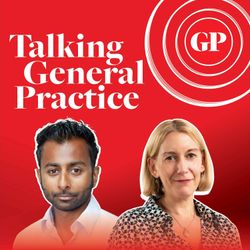
18. Super partnerships, AI regulation and the future of general practice
32:09||Season 6, Ep. 18Emma speaks to Dr Vish Ratnasuriya, a GP partner and the elected chair of Our Health Partnership, one of the UK’s largest super partnerships. Vish was also recently appointed as a member of the newly formed National Commission for the Regulation of AI in Healthcare.In this episode, Vish explains how Our Health Partnership;s ‘decentralized’ super partnership model helps support practices while retaining local autonomy. He discusses the advantages of working at scale and the shift towards neighborhood working - and shares his views on why general practice needs to lead on this work and the opportunities for moving more care out of hospitals and into the community.He also talks about the huge role technology and AI will play in the future of the NHS. Vish explains what the new national commission aims to achieve and the vital importance of establishing clear rules on liability and safety for new technologies.This episode was presented by GPonline editor Emma Bower. It was produced by Czarina Deen.Useful linksOur Health PartnershipNational Commission for the Regulations of AI in HealthcarePrimary Care AcceleratorWest Midlands Health Tech Innovation AcceleratorQuarter of GPs use AI but 'wild west' rollout sparks safety fearsViewpoint: How can general practice make best use of AI?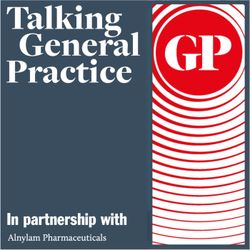
BONUS EPISODE: Understanding genetic kidney risk in South Asian populations - sponsored by Alnylam Pharmaceuticals
12:02||Season 6In this special bonus episode Talking General Practice speaks to consultant nephrologist Dr Shafi Malik about the heightened risk of genetic kidney conditions among South Asian populations.In this conversation, Dr Malik explains why patients of South Asian origin are more at risk of genetic kidney disease and how common these conditions are. He talks specifically about primary hyperoxaluria type 1 (PH1), the symptoms patients might present with if they have this condition - including recurrent kidney stones - and, as kidney stones are a common presentation, how healthcare professionals can recognise when these cases may warrant further investigation.This episode was presented by GPonline editor Emma Bower. It was produced by Czarina Deen.This episode of Talking General Practice has been funded by Alnylam Pharmaceuticals and produced in collaboration with GPonline. It is intended for UK healthcare professionals only.Useful linksThinkPH1.euNational Kidney Federation – PH1About Alnylam PharmaceuticalsAlnylam is a leading biopharmaceutical company and the pioneer in RNA interference (RNAi), a revolutionary approach to treating diseases which “silences” the genes that cause or contribute to them. Founded in 2002 by a group of distinguished researchers and biotech leaders, Alnylam has translated the Nobel Prize-winning science of RNAi into an innovative class of medicines, with the belief that the RNAi approach to treating disease has the potential to help people around the world live longer, healthier and more fulfilling lives.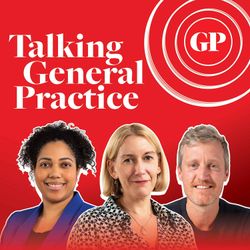
17. Wes Streeting complaint, BMA GP committee split, how GPs are using AI
33:09||Season 6, Ep. 17The GPonline team discusses the ongoing dispute between the government and the BMA GP committee in England after a GP and member of the BMA Council and BMA GP committee reported health and social care secretary Wes Streeting to the Parliamentary Commissioner for Standards for the language he’s used about the BMA in the dispute.They also look at the internal politics at the BMA itself after a member of the GP committee resigned citing concerns about a 'toxic and unbearable' environment.And they talk about AI in general practice, following a report by the Nuffield Trust think tank and the RCGP about how GPs are using new tech and some of the concerns about how it is being rolled out.Our good news story is about a GP who is bidding to become Christmas number 1 with her song song that forms part of a campaign challenging stigma around women’s anatomy and periods.This episode was presented by GPonline editor Emma Bower, deputy editor Nick Bostock and senior reporter Kimberley Hackett. It was produced by Czarina Deen.Useful linksGP makes formal complaint over Wes Streeting behaviour towards BMADoctor resigns from BMA England GP committee claiming it is 'toxic and unbearable’How could 'wider consultation' shape the GP contract for 2026/27?Quarter of GPs use AI but 'wild west' rollout sparks safety fearsViewpoint: How can general practice make best use of AI?Dr Aziza Sesay’s songDownload on SpotifyDownload on Apple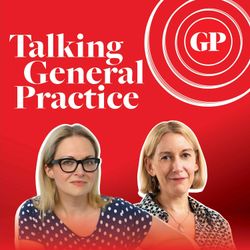
16. Dr Katie Bramall on navigating the GP dispute, future GP contracts and the 10-year health plan
45:32||Season 6, Ep. 16Emma speaks to Dr Katie Bramall, chair of the BMA’s GP committee in England.In this conversation, Katie talks about the current dispute with the government over online access changes. She responds to the recent letter sent to GPs by health secretary Wes Streeting, which accused her of 'unprofessional behaviour' and misleading the profession over contract changes, and explains why she believes trust between the profession and the government has evaporated.Katie also talks about the next steps in the dispute, explaining why there is no immediate plan for a ballot on industrial action, and discusses her concerns about the 10-year health plan and what this could all mean for future GP contracts.This episode was presented by GPonline editor Emma Bower. It was produced by Czarina Deen.Useful linksHow could 'wider consultation' shape the GP contract for 2026/27?Government hails online consultation rollout but ignores impact on practicesTimeline: How general practice re-entered dispute with the governmentGP makes formal complaint over Wes Streeting behaviour towards BMASubscribe to GPonlineIf you’re listening to this podcast, you know how fast general practice is moving.To keep up, you need more than just headlines. A GPonline subscription gives you expert analysis on the latest news affecting general practice and how it impacts on you. A subscription to GPonline also gives you access to MIMS for prescribing information, and MIMS Learning to help you complete your CPD. It’s your daily briefing and your education platform in one.Subscribe now at gponline.com/subscribe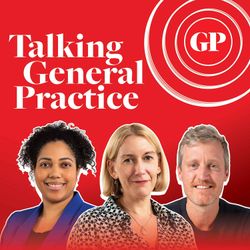
15. Are GPs heading for an imposed contract next year, plus what the budget means for general practice
30:38||Season 6, Ep. 15The GPonline team discusses the key news stories affecting general practice.The team talks about GP contract negotiations after the government confirmed it intended to talk to key stakeholders alongside the BMA as part of putting together next year’s deal - and health and social care secretary Wes Streeting wrote to the profession accusing the GP committee chair of lies and unprofessional behaviour.They discuss this week’s budget and what some of the measures outlined by the government could mean for general practice.And Kimberley talks about an article she wrote recently interviewing a GP who has spent time working in Gaza.Our good news story this week is about patients and a neighbouring surgery rallying around to help a practice that was severely affected by flooding in the wake of the recent Storm Claudia.This episode was presented by GPonline editor Emma Bower, deputy editor Nick Bostock and senior news reporter Kimberley Hackett. It was produced by Czarina Deen.Useful linksUK GP shares her experiences of working in war-torn GazaStreeting accuses BMA GP chair of lies and 'unprofessional' behaviourTimeline: How general practice re-entered dispute with the governmentWhat does the autumn budget mean for GPs?Neighbouring surgery and patients rally round GP practice flooded by Storm Claudia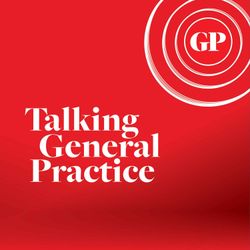
14. Why GP continuity of care matters - and how practices can deliver it
38:44||Season 6, Ep. 14Emma speaks to Dr Luke Sayers, a GP partner and the project lead for continuity of care at North East and North Cumbria ICB, and Dr Tom Kennedy, a GP registrar and ICB clinical fellow, about the importance of continuity of care.Luke and Tom explain why continuity is so vital for both patients and doctors, discussing the evidence that shows it improves patient safety and reduces mortality, as well as the positive impact it has on GP job satisfaction and retention.They discuss the misconception that focusing on continuity negatively impacts access, and they explain why the reverse is often true. They also set out practical steps practices can take to improve and measure continuity, including the use of micro-teams and personal lists, and how this way of working fits into the vision of a neighbourhood NHS.This episode was presented by GPonline editor Emma Bower. It was produced by Czarina Deen.Useful linksBuilding relational continuity of care in your practice - the poster Luke presented at the RCGP annual conference this yearWhat makes general practice work: the role of continuity in efficient and sustainable primary care - the BJGP paper by Professor Tom Marshall that Luke mentions in this episodeContinuity Counts website, which Tom mentions in this interviewValue of GP continuity risks 'slipping from collective memory' - story about the RCGP talk that Emma mentions (on GPonline)